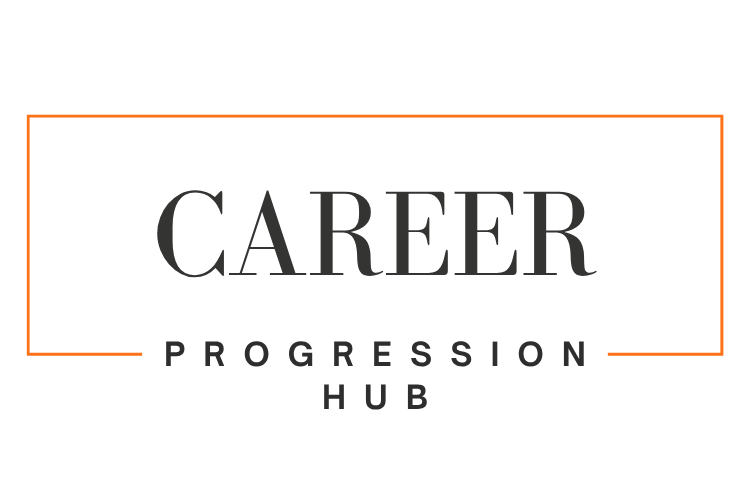Career Progression Hub
London, UK
Choosing the right career path is one of the most important decisions you’ll ever make. It shapes not only your professional future but also your personal fulfillment, financial security, and overall sense of purpose. With countless options available, making the right choice can feel overwhelming, especially at the beginning of your career. That’s where career aptitude tests come in—offering valuable insights into your strengths, interests, and personality traits, and helping you navigate toward a fulfilling career.
The Importance of Choosing the Right Career Path
A career is more than just a job; it’s a significant part of your life that impacts how you spend your time, the people you interact with, and how you see yourself. Here are a few reasons why selecting the right career path is so critical:
- Long-Term Satisfaction: Choosing a career that aligns with your interests and strengths increases job satisfaction and reduces burnout. When you enjoy what you do, work feels less like a chore and more like a source of personal growth.
- Professional Growth: A well-suited career path allows for continuous development, challenging you to acquire new skills and take on meaningful roles. When you’re in the right field, you’ll naturally find opportunities to evolve and excel.
- Financial Stability: While passion is important, so is the financial aspect of your career. A well-chosen career can provide the earning potential that aligns with your lifestyle and future goals.
- Work-Life Balance: Different careers offer different lifestyles. Some may involve extensive travel, while others may offer more flexibility. Choosing a career that matches your personal goals ensures better balance between your professional and personal life.
Given the weight of this decision, taking a thoughtful and informed approach can save you from costly detours or regret down the road.
How Career Aptitude Tests Can Help
Career aptitude tests have gained popularity as effective tools for individuals trying to determine their professional paths. They offer insights into your natural abilities, preferences, and personality traits, helping to match you with careers that are well-suited for your strengths. Here’s how these tests can benefit you:
1. Understanding Your Strengths and Weaknesses
Career aptitude tests help assess key areas such as analytical skills, creativity, leadership ability, communication, and technical aptitude. By identifying your natural talents and areas for improvement, these tests can direct you toward career paths that play to your strengths.
For instance, if you score high in creative problem-solving but low in repetitive tasks, you might thrive in careers such as marketing, design, or entrepreneurship rather than roles that require routine-based work.
2. Discovering Your Interests
Interest-based assessments ask about your preferences regarding different work environments, job duties, and industries. These tests highlight careers that align with what you enjoy doing. For example, if you’re drawn to helping others and working in team settings, roles in healthcare, education, or counseling might be a good fit.
3. Personality Alignment
Certain personality traits—like being detail-oriented, outgoing, or highly organized—can indicate a natural fit for specific roles. A personality test like the Myers-Briggs Type Indicator (MBTI) or the Big Five Personality Test can suggest careers that align with your personality traits. Extroverted individuals may thrive in careers that involve frequent interaction, like sales or public relations, while introverted people might find fulfillment in research or analytical roles.
4. Matching Skills to Jobs
Some aptitude tests also evaluate practical skills such as math, reading comprehension, and mechanical reasoning. These can be especially helpful for identifying specialized career paths that require a certain set of technical skills, such as engineering, finance, or IT.
5. Clarifying Career Goals
By using a career aptitude test, you may discover career paths you hadn’t considered or confirm ideas you were already exploring. This clarity can provide a sense of direction, helping you plan educational and professional steps to achieve your goals. If you’re still deciding on a major or a specific career, these tests can point you toward degree programs and internships that will build the skills you need.
Types of Career Aptitude Tests
There are several types of career aptitude tests, each focusing on different aspects of career fit. Here are a few well-known ones:
- The Myers-Briggs Type Indicator (MBTI): Assesses personality types and offers insights into which career environments are most suitable for different personalities.
- Strong Interest Inventory (SII): Measures your interest in various activities and aligns them with different career options.
- CliftonStrengths (formerly StrengthsFinder): Identifies your core strengths and how you can apply them in different career paths.
- Holland Code (RIASEC): Helps you identify career fields based on six broad personality types—Realistic, Investigative, Artistic, Social, Enterprising, and Conventional.
- Skills Matcher: Offered by career development resources, this test evaluates your existing skills and suggests relevant careers that match them.
How to Use Career Aptitude Tests Effectively
Taking a career aptitude test is a valuable step, but it’s not a definitive answer to your future. Here are some tips for making the most of these tests:
- Use Multiple Tests: Don’t rely on just one test. Different tests focus on different areas, so taking several will give you a well-rounded view of your abilities and interests.
- Reflect on the Results: After taking a test, take time to reflect on the results. Do the suggestions align with what you enjoy? Do they reveal new areas of interest you hadn’t considered?
- Seek Guidance: Discuss the results with a career counselor, mentor, or professional in your desired field. They can provide insights on how accurate the results are and help you build a plan for moving forward.
- Combine with Research: Use your test results as a starting point, but continue researching careers through informational interviews, job shadowing, and internships to better understand the day-to-day realities of potential career paths.
Conclusion
Choosing the right career path is a deeply personal and important decision, and career aptitude tests can provide valuable guidance along the way. By evaluating your strengths, interests, and personality traits, these tools offer insights into careers where you’re most likely to thrive. While they aren’t a crystal ball, they can certainly help you narrow down options and give you the confidence to take the next step on your professional journey. Whether you’re just starting out or contemplating a shift, a career aptitude test can be a useful ally in finding the path that’s right for you.







